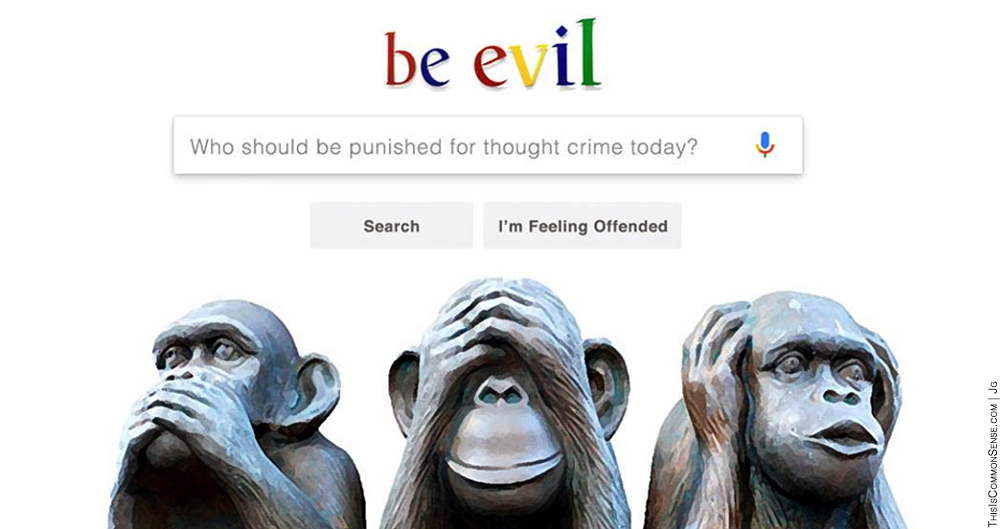Once upon a time, Google penned a stern note to self: “Don’t be evil.”
What you regard as avoiding evil, though, depends on what you regard as doing good.
Does Google think it’s “good” to fire someone for offering reasoned objections to vapid pieties about why there are more men than women working as programmers, and about how to fix the problem? Assuming it is a problem.
If the answer is yes, then it’s up to more reasonable people to say, “No, Google, stomping on candid internal discussion of your (bad) politics and policies is not ‘doing good.’”
Alas, some Google critics push for a “remedy” worse than the problem: government force. They want government to impose new prohibitions and mandates on large private firms that help people to spread their opinions.
I don’t necessarily agree when a firm — Google, Twitter, PayPal or anybody else — stops providing services to persons expressing views that managers and HR departments disdain. Yet I may agree. No one is morally obligated — and no one should be legally compelled — to help spread the views of others.
I certainly refuse to distribute any installment of “Common Sense” guest-authored by The Anti-Paul-Jacob Club.
When market actors make bad decisions without violating anyone’s rights, others have many powerful and peaceful means of opposing those decisions. Criticism. Boycott. Competition.
But we shouldn’t seek to outlaw the decision-making.
The right to freedom includes no guarantee that one will always do the right thing as others see it.
This is Common Sense. I’m Paul Jacob.











